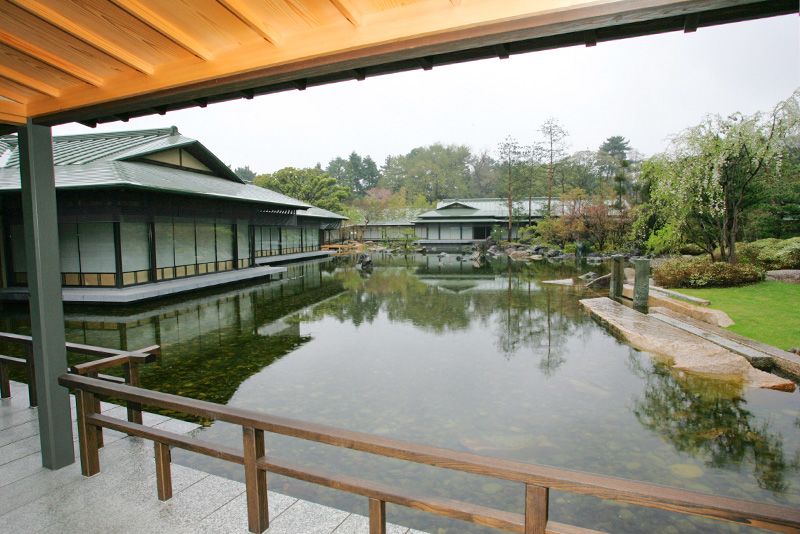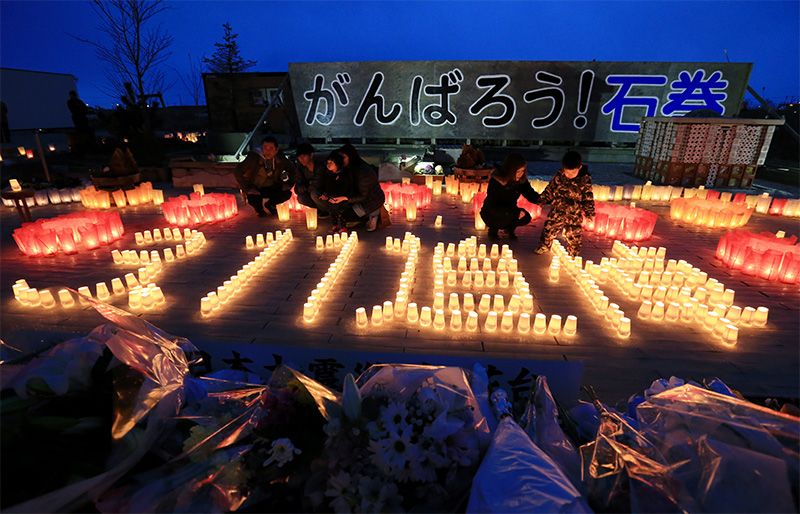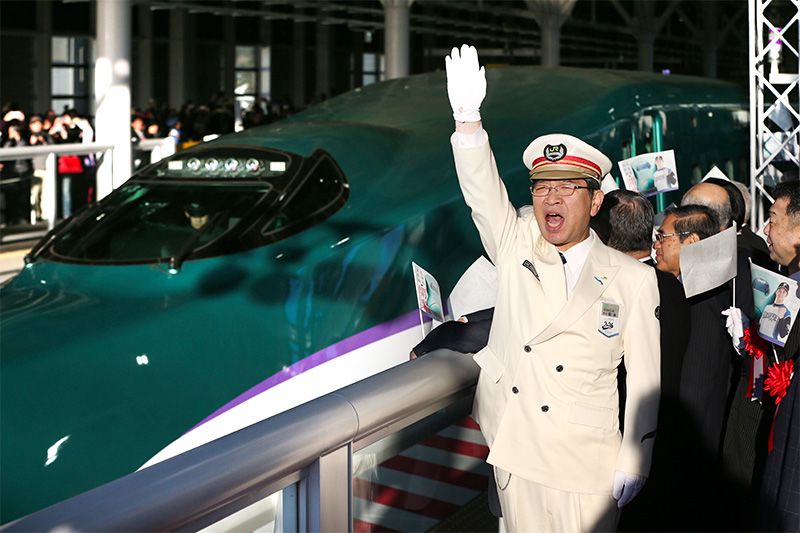Timeline for March 2016
Politics Economy Science Technology Society- English
- 日本語
- 简体字
- 繁體字
- Français
- Español
- العربية
- Русский
2
At a House of Councillors Budget Committee session, Prime Minister Abe Shinzō states that he would like to amend the Constitution while still in office. His final term as Liberal Democratic Party president will expire in September 2018. He says that he will seek a two-thirds majority in favor of amendment in this summer’s House of Councillors election.
4
The Japanese government agrees to halt construction related to relocation of US Marine Corps Air Station Futenma from Ginowan to Henoko in Nago, Okinawa Prefecture, accepting a settlement mediated by the Naha branch of the Fukuoka High Court. This follows stiff local opposition led by Okinawa Governor Onaga Takeshi, which developed into a legal battle.
5
An anonymous blog entry written by an angry mother unable to get her child into daycare goes viral, prompting a demonstration by parents outside the Diet. On March 28, the Ministry of Health, Labor, and Welfare announces emergency measures to reduce the number of children on waiting lists.
6
At a press conference, Chief Cabinet Secretary Suga Yoshihide says that the Kyoto State Guest House will be open all year round to the general public from late July. The move is part of efforts to draw more tourists to Japan.
 A view of the pond and Japanese garden from a bridge at the Kyoto State Guest House. Picture taken in April 2005. (© Jiji)
A view of the pond and Japanese garden from a bridge at the Kyoto State Guest House. Picture taken in April 2005. (© Jiji)
7
Japan’s women’s soccer team fails to qualify for the Rio de Janeiro Olympics this summer after Australia and China took the two spots available for qualifiers from Asia. Coach Sasaki Norio, who steered Nadeshiko Japan to a World Cup win in 2011 and a silver medal at the London Olympics in 2012, resigns on March 10.
The United Nations Committee on the Elimination of Discrimination Against Women releases its final report on Japan, including recommendations for the government. It calls for revision of Civil Code rules preventing spouses from maintaining separate surnames after marriage and prohibiting women from remarrying immediately after divorce. It also recommends full consideration of the views of former comfort women when implementing the agreement reached with South Korea last December.
9
Yamamoto Yoshihiko, the presiding judge at the Ōtsu District Court, orders reactors 3 and 4 at the Takahama Nuclear Power Station in Takahama, Fukui Prefecture, to halt operations due to insufficient evidence from Kansai Electric Power Co. that they are safe. This is the first temporary injunction issued against an active nuclear plant in Japan.
11
Ceremonies are held around Japan to mark the fifth anniversary of the Great East Japan Earthquake. A total of 18,455 died in the disaster or remain missing as of March 11 this year, while more than 3,000 have died since as a result of indirectly connected factors. Over 170,000 people still live in temporary accommodation, mainly in the prefectures of Iwate, Miyagi, and Fukushima.
 Candles form “3.11 追悼” (mourning 3/11) in front of a sign encouraging local residents in Ishinomaki, Miyagi Prefecture, on March 11, 2016. (© Jiji)
Candles form “3.11 追悼” (mourning 3/11) in front of a sign encouraging local residents in Ishinomaki, Miyagi Prefecture, on March 11, 2016. (© Jiji)
16
Many of Japan’s leading companies announce lower pay rises than in 2015 due to the uncertain economic outlook. Toyota’s ¥1,500 base pay hike is less than half of last year’s figure, while Honda, Hitachi, and Panasonic also offer significantly smaller increases.
A video is posted online of Japanese freelance journalist Yasuda Junpei, who went missing after entering Syria in June 2015. Japanese media reports the possibility that Yasuda has been abducted by an affiliate group of Al-Qaeda.
17
Nintendo launches Miitomo, its first smartphone app, in which users create avatars to interact with each other. On March 19, the company states that the app has over a million users, prompting a sharp rise in its share price.
21
The Japan Meteorological Agency declares that cherry blossom trees in Tokyo are officially in bloom. The blossoms open five days earlier than an average year.
22
A Japanese man is detained in Gaziantep, southern Turkey on the grounds that he is attempting to join Daesh, which calls itself Islamic State. He is deported and returns to Japan, where he denies the charge.
The Ministry of Land, Infrastructure, Transport, and Tourism announces that the average price of land—as of January 1—has increased for the first time in eight years, boosted by rising values in major cities.
23
The government downgrades its assessment of the economy for the first time in five months due to stagnant consumer spending and deteriorating corporate sentiment.
25
Shikoku Electric Power Co. announces that it has decided to scrap reactor 1 at its Ikata Nuclear Plant in Ikata, Ehime Prefecture. The reactor, which has been offline since a safety check in September 2011, will be 40 years old in September 2017, and the power company decided that the upgrades required to meet new safety standards would be too expensive.
26
The Hokkaidō Shinkansen goes into operation, making possible Shinkansen travel from Hokkaidō to Kyūshū. The fastest trains link Tokyo and Shin-Hakodate-Hokuto Stations in just 4 hours and 2 minutes, passing through the Seikan Tunnel—the world’s longest undersea tunnel—to reach the northern island. While newly connected cities are expected to enjoy an economic boost from tourists and business travelers, the service itself is projected to make an average annual loss of ¥4.8 billion for the first three years of operation.
 The first Hokkaidō Shinkansen service prepares to leave Shin-Hakodate-Hokuto Station on March 26, 2016. (© Jiji)
The first Hokkaidō Shinkansen service prepares to leave Shin-Hakodate-Hokuto Station on March 26, 2016. (© Jiji)
27
The Democratic Party of Japan and the Japan Innovation Party merge at a Tokyo meeting to become the Democratic Party (Minshintō in Japanese). The new party is the largest opposition force, with 156 politicians in both houses. DPJ leader Okada Katsuya, chosen as the head of the new party, states that he wishes to change the direction of Japanese politics.
29
Security legislation passed in September 2015 comes into effect. It allows Japan to exercise the right of collective self-defense, previously banned under the Constitution, meaning that Self-Defense Forces can support allied forces under attack.
The government’s ¥96.7 trillion state budget for fiscal 2016 is approved in the House of Councillors. Social welfare spending rises 1.4% year-on-year to ¥32.0 trillion, while defense spending increases 1.5% to ¥5.1 trillion, topping ¥5 trillion for the first time.Soccer nuclear power Hokkaidō Shinkansen Futenma defense 3/11 Minshintō